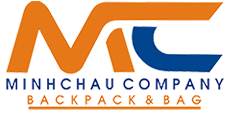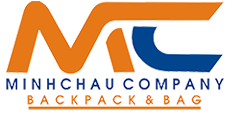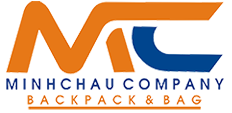As small and medium enterprises (SMEs) look to scale and improve operational efficiency, Enterprise Resource Planning (ERP) systems have become vital tools for success. ERP solutions integrate various business processes—from finance, procurement, inventory, to human resources—into a single system, enabling businesses to streamline their operations and improve decision-making. However, selecting the right ERP solution is crucial, especially for SMEs that often have tighter budgets and resource constraints.
In this article, we’ll explore the top ERP solutions tailored for SMEs, highlighting their features, benefits, and why they are ideal for growing businesses.
1. SAP Business One
SAP Business One is a leading ERP solution designed specifically for small and medium-sized businesses. It offers a comprehensive set of features that cover key business areas, such as accounting, sales, customer relationship management (CRM), supply chain management, and inventory control.
Key Features:
- Financial Management: SAP Business One offers strong financial management capabilities, including budgeting, forecasting, and financial reporting.
- Sales and Customer Management: With built-in CRM, businesses can track customer interactions, manage sales pipelines, and improve customer relationships.
- Real-Time Analytics: SAP Business One provides real-time reporting and analytics, enabling businesses to make data-driven decisions quickly.
Why It’s Ideal for SMEs:
SAP Business One is scalable and modular, meaning businesses can start with the basic functionalities and add more features as they grow. The system is also available in both on-premise and cloud-based versions, offering flexibility for businesses depending on their infrastructure and budget.
2. NetSuite ERP
NetSuite ERP, developed by Oracle, is a cloud-based ERP solution that’s highly popular among SMEs due to its scalability and robust feature set. It covers a broad range of business functions, including financial management, order management, production management, and procurement.
Key Features:
- Cloud-Based Flexibility: As a fully cloud-based ERP, NetSuite can be accessed from anywhere, making it ideal for businesses with remote or distributed teams.
- Financial Management: It includes comprehensive accounting and financial management tools, as well as tools for managing fixed assets, financial reporting, and billing.
- Order and Inventory Management: NetSuite’s order and inventory management tools help SMEs optimize stock levels and improve supply chain efficiency.
Why It’s Ideal for SMEs:
NetSuite’s flexibility and scalability make it a great option for growing businesses. Its modular approach allows SMEs to implement only the features they need, expanding as their requirements evolve. Additionally, being cloud-based reduces the need for a large IT infrastructure, which can save costs.
3. Odoo ERP
Odoo is an open-source ERP system that offers a wide range of modules covering different business areas, including accounting, sales, purchasing, inventory, and human resources. Its modular design makes it one of the most flexible ERP solutions available, allowing businesses to customize the system according to their specific needs.
Key Features:
- Open-Source Flexibility: Odoo’s open-source nature means businesses can easily customize the system to fit their unique processes.
- Affordable Pricing: Odoo’s pricing model is affordable for SMEs, with a free basic version available and paid versions for more advanced features.
- Wide Range of Modules: Odoo offers over 30 modules that can be integrated seamlessly, covering everything from CRM to project management and eCommerce.
Why It’s Ideal for SMEs:
Odoo is highly customizable and cost-effective, making it a great solution for SMEs that want full control over their ERP system. Its open-source platform allows businesses to modify the software as needed, making it adaptable to different industries and business models.
4. Microsoft Dynamics 365 Business Central
Microsoft Dynamics 365 Business Central is a cloud-based ERP solution designed for small and medium-sized businesses. It integrates with other Microsoft products, such as Office 365 and Power BI, making it a natural fit for businesses already using Microsoft’s suite of tools.
Key Features:
- Integration with Microsoft Tools: Business Central integrates seamlessly with Microsoft Office and other tools, streamlining communication and collaboration across the business.
- Financial Management and Reporting: It offers comprehensive financial management tools, including budgeting, forecasting, and multi-currency accounting.
- Supply Chain Optimization: The system includes features for inventory and supply chain management, helping SMEs reduce costs and improve efficiency.
Why It’s Ideal for SMEs:
Business Central is highly scalable and can grow alongside the business. Its integration with Microsoft’s ecosystem makes it easy for companies already using Microsoft products to implement and get the most out of the ERP system. It is also available on a subscription basis, reducing upfront costs.
5. Zoho ERP
Zoho ERP is part of Zoho’s suite of business applications, which are designed to simplify processes for small businesses. Zoho ERP provides modules for managing everything from accounting and finance to sales, customer support, and inventory management.
Key Features:
- User-Friendly Interface: Zoho ERP is designed with ease of use in mind, making it simple for employees to navigate and use without extensive training.
- Customizable Workflows: It offers customizable workflows to tailor the system to the business’s unique processes.
- Affordable Subscription Plans: Zoho ERP is one of the most affordable ERP solutions, offering flexible pricing plans that cater to SMEs.
Why It’s Ideal for SMEs:
Zoho ERP’s affordability and user-friendly design make it an excellent choice for small businesses looking for an easy-to-implement solution. Its cloud-based architecture ensures that businesses can access the system from anywhere, without needing a significant IT infrastructure.
Conclusion
Choosing the right ERP solution is crucial for small and medium enterprises to streamline operations and foster growth. Solutions like SAP Business One, NetSuite ERP, Odoo, Microsoft Dynamics 365 Business Central, and Zoho ERP offer a wide range of features that cater specifically to the needs of SMEs. Factors such as cost, scalability, integration with existing tools, and ease of use are key considerations when selecting the best ERP solution for your business. By investing in the right ERP system, SMEs can improve operational efficiency, enhance decision-making, and position themselves for sustainable growth.
This article outlines the top ERP solutions for SMEs, highlighting their features, benefits, and reasons why they are ideal for small to medium-sized enterprises






